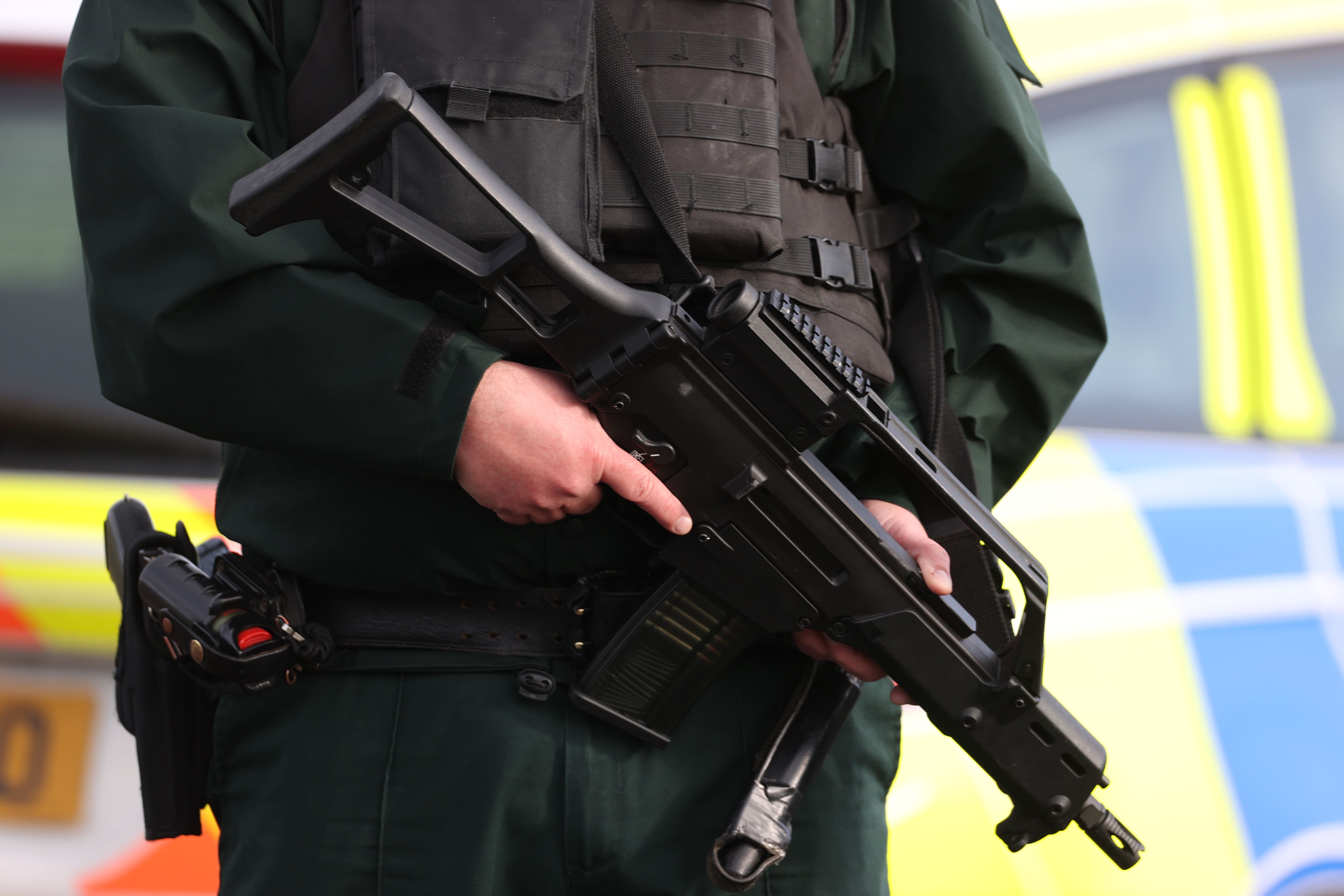Chris Kaba: Army soldiers stood down as armed Met officers return to duty
Soldiers had been on standby for armed police after scores of Metropolitan Police officers stood down from firearms duties

Britain’s biggest police force has stood down a plan to use military back-up after enough firearms officers returned for it to cover counter-terrorism duties.
Soldiers had been on standby after scores of Metropolitan Police officers stood down from firearms duties to “consider their position” after one of their colleagues was charged with murder over the death of 24-year-old Chris Kaba in south London.
But the Army has been stood down after enough officers returned to armed duties, the force said.
A Metropolitan Police spokesperson said: “On Saturday, the Ministry of Defence agreed to provide the Met with counter-terrorism support as a contingency option.
“As of lunchtime on Monday, the number of officers who had returned to armed duties was sufficient for us to no longer require external assistance to meet our counter-terrorism responsibilities.”
Cover was drafted in from neighbouring forces over the weekend after it was claimed that around 100 of the Met’s 2,595 marksmen were refusing to perform their armed roles.
The military also agreed to help, but soldiers do not have the authority to be used for routine policing and can only be used in the case of a counter-terrorism attack or for guarding certain locations such as nuclear sites.
On Monday afternoon, a “limited number” of armed officers from other UK police forces were still providing support to the Met, the force confirmed, adding that the situation will be kept under review.
It comes as the prime minister, Rishi Sunak, said that armed police need “clarity” about the legal powers they have as he backed a Home Office review announced by Suella Braverman.
Rishi Sunak said it “wouldn’t be right” for him to comment on the case of the unnamed officer, known as officer NX121, who appeared in court last week charged over the 2022 shooting of Mr Kaba.
Speaking to broadcasters during a visit to a community centre in Broxbourne, Hertfordshire, on Monday, he said: “Our firearms officers do an incredibly difficult job.
“They are making life or death decisions in a split second to keep us safe and they deserve our gratitude for their bravery.
“Now it is important when they are using these legal powers that they do so with clarity and they have certainty about what they are doing, especially given the lethality they are using.”
On Sunday, the home secretary said she had ordered a review into armed policing, adding “we depend on our brave firearms officers to protect us”.
It was welcomed by Met Police commissioner Sir Mark Rowley, who had called for reforms to the way officers are held to account in an open letter to Ms Braverman.
Proposed reforms put forward by the police chief include legal changes over the way self-defence is interpreted in police misconduct cases.
He also called for the introduction of a criminal standard of proof for unlawful killing in inquests and inquiries, along with changes to the threshold at which the Independent Office for Police Conduct (IOPC) can launch an investigation.
Sir Mark said: “There is a concern on the part of firearms officers that even if they stick to the tactics and training they have been given, they will face years of protracted legal proceedings which impact on their personal wellbeing and that of their family.”
However, charity Inquest said his proposed reforms would give firearms officers a “licence to kill”.
Director Deborah Coles said: “Police cannot be judge, jury and executioner and must not be above the law. Already we know that accountability for officers involved in wrongdoing and deaths is exceedingly rare.
“Mark Rowley’s asks to the home secretary, including overturning two recent Supreme Court judgements, would make accountability for police use of force virtually impossible. Effectively giving firearms officers a licence to kill. That cannot be in the public interest.”
Meanwhile, a former terror chief accused firearms officers of staging an “industrial protest” after officers stepped down from armed duties “en masse”.
Former counter-terrorism police chief Nick Aldworth said that unarmed police officers faced the same risk of being charged with a criminal offence following a death as firearms officers.
“We are an unarmed police service, and therefore we will only ever have volunteers who wish to perform the roles of armed officers. Those come with enormous responsibility and potential risk, both physical and judicial,” Mr Aldworth said.
“The judicial risks are no different to that experienced by any other police officer. We have seen police officers charged with murder and manslaughter without using firearms.
“The problem I have with what’s going on is [that] those risks and the perceived weaknesses in the law are well known.
“So what is happening now is not people who are experiencing a sudden questioning of morally whether they to want to carry a gun, or do they really feel that the law doesn’t support them, they are engaged in industrial protest.
“For good reason, the Police Act does not allow police officers to strike or undertake industrial action. But that is what this is, quasi-industrial action.”
The National Police Chief’s Council and the Police Federation will work with the Home Office as they carry out their armed policing review, The Independent understands.
On behalf of the NPCC, Chief Constable Charlie Hall said: “Mutual aid is routinely used to share officers across the country to ensure public safety, and so the National Police Coordination Centre is supporting the Metropolitan Police to ensure the force has the resilience it needs.”
Subscribe to Independent Premium to bookmark this article
Want to bookmark your favourite articles and stories to read or reference later? Start your Independent Premium subscription today.
